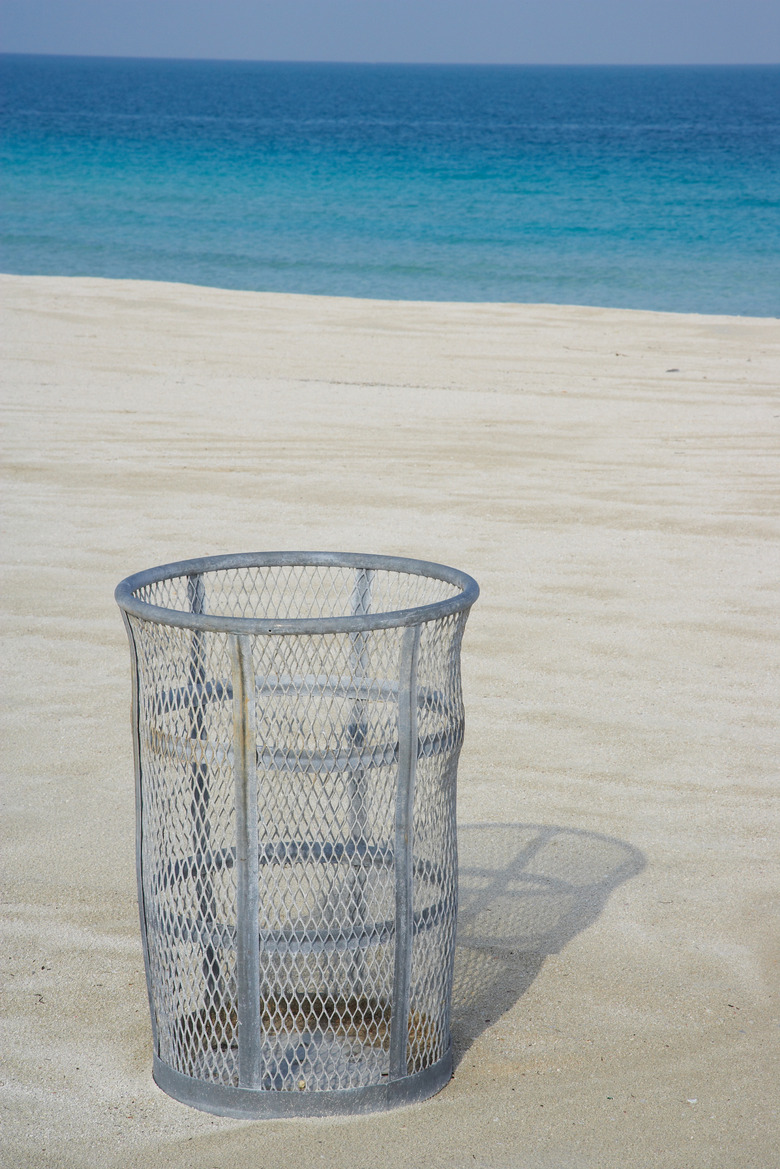How Is Plastic Trash Affecting The Ocean Food Chain?
In the late 1990s, the scientific community began to gain awareness of a massive Pacific Ocean current that was filled with tiny bitsof plastic waste — a swath of ocean that was eventually dubbed the Great Pacific Garbage Patch. The area is one of many garbage-filled oceanic regions called gyres, which are hold significantly more garbage than the surrounding ocean. These gyres are formed by a confluence of currents that funnel our trash into higher concentrations. While gyres are the most prevalent example, plastic trash is found in almost any part of the world's oceans.
How Does Plastic Trash Get Into the Ocean?
How Does Plastic Trash Get Into the Ocean?
According to Project GreenBag, approximately 20 percent of the plastic trash in the ocean gets there from either sea-going vessels or offshore platforms. The rest is either blown in from land or dumped directly into the water. All of this trash is slowly adding up. A 2012 study from the Scripps Institution of Oceanography at University of California, San Diego found that the size of the Pacific Garbage Patch has increased 100-fold over in the past 40 years to about the size of Texas — and this is just one gyre. The rest of the world's oceans are also accumulating more and more plastic.
Some Organisms Benefit From the Trash
Some Organisms Benefit From the Trash
Tiny insects, called sea skaters, are actually benefiting from all that trash. The Scripps study found that marine water skimming bugs, similar to those seen shooting across freshwater ponds in the United States, are laying their eggs on the mass of floating debris. No longer limited by scarce naturally-occurring ocean detritus, the population of these tiny insects has exploded. Predators of these little bugs have, in turn, benefited indirectly from the abundance of plastic debris. The study also found that bigger sea creatures that gravitate to some type of shelter, such as crabs and certain fish, could easily take advantage of plastic trash in the ocean and use it to avoid predators.
Ingested Plastic has Lasting Detrimental Effects
Ingested Plastic has Lasting Detrimental Effects
However, most species are negatively affected by the flow of plastics entering our oceans. A 2008 study in the journal "Environmental Research" found that approximately 44 percent of all seabirds have eaten plastic and nearly 270 marine species are negatively affected by the garbage. Besides posing a physical hazard to the digestive tracts of fish, plastic bits in the Pacific Ocean can absorb and concentrate organic pollutants such as PCBs and DDT from the surrounding seawater. These pollutants have been known to cause cancer and birth defects and disrupt many of the body's tissues and organs. They are also passed up the food chain when predators, such as humans, eat prey that has been contaminated.
Trash Reduction
Trash Reduction
In an attempt to mitigate the flow of trash into the Pacific, the state of Hawaii joined a smattering of onshore cities and counties when it voted in May 2012 to ban the use of plastic shopping bags by 2015. The ban was heavily supported by local conservation groups, such as the the Sierra Club and the Surfrider Foundation. The ban is part of a movement being pushed by many organizations, such as Californians Against Waste, to switch from plastic shopping bags to reusable bags. On its website, the California group framed plastic ocean pollution as a financial issue, saying that local and state agencies spend "millions each year in cleanup costs alone."
Cite This Article
MLA
Smith, Brett. "How Is Plastic Trash Affecting The Ocean Food Chain?" sciencing.com, https://www.sciencing.com/plastic-trash-affecting-ocean-food-chain-12143/. 24 April 2017.
APA
Smith, Brett. (2017, April 24). How Is Plastic Trash Affecting The Ocean Food Chain?. sciencing.com. Retrieved from https://www.sciencing.com/plastic-trash-affecting-ocean-food-chain-12143/
Chicago
Smith, Brett. How Is Plastic Trash Affecting The Ocean Food Chain? last modified March 24, 2022. https://www.sciencing.com/plastic-trash-affecting-ocean-food-chain-12143/
